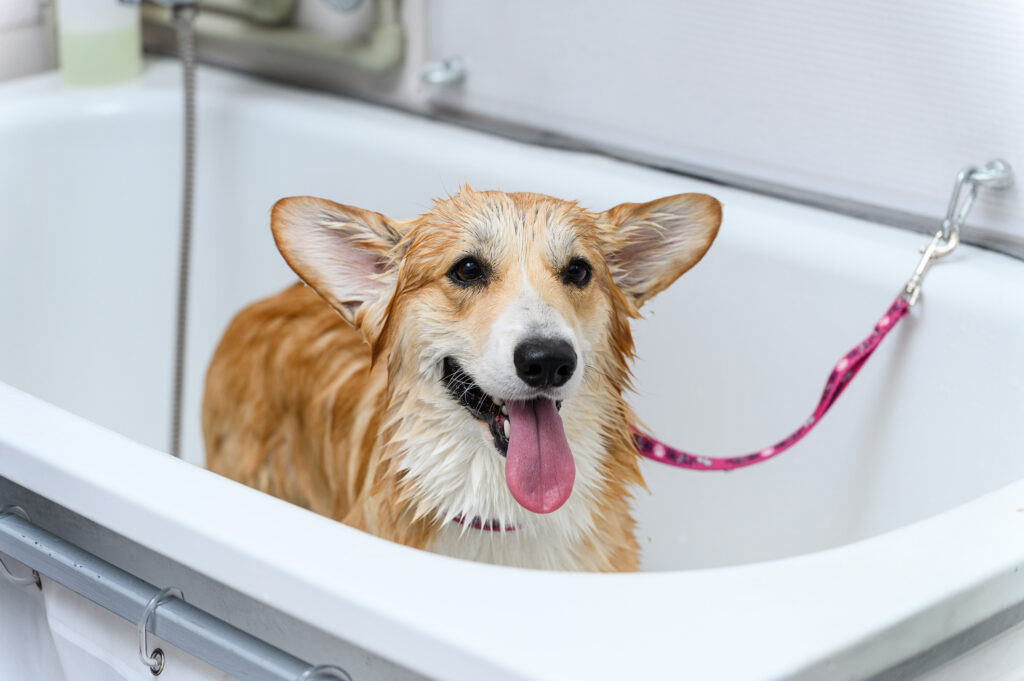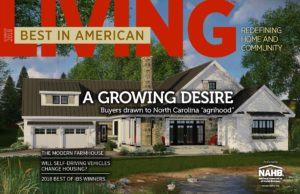Pets can have a significant impact on home buying decisions for many people. According to the U.S. Census Bureau, 2021 data shows that there are 63.8 million occupied housing units have at least one pet which represents almost 50% of the 128.5 million occupied housing units. A recent U.S. Bureau of Labor Statistics Consumer Expenditure Surveys examines the increase in household budget spent on pet-related expenses. In 2021, consumers spent more than $100 billion on pet-related expenses, far exceeding other categories such as women’s clothing or alcoholic beverages.
When it comes to home buying decisions, 19% of all home buyers factored in their pet into their neighborhood choices according the National Association of Realtor’s 2022 Profile of the Home Buyers and Sellers. Community and neighborhood factors such as pet-friendly communities and neighborhood amenities (like dog parks, proximity to vet services, or pet-friendly businesses) can influence consumer’s buying decisions. NAHB’s What Home Buyers Really Want covers preferences for pet washing stations and the importance of community features such as dog parks for pet owners.


Home features play a crucial role in attracting pet owners and influencing their home buying decisions.
- Outdoor Spaces:
- Fenced Yards: Many pet owners prioritize homes with fenced yards, providing a safe space for their pets to roam freely.
- Gardens and Landscaping: Pet-friendly landscaping, such as a well-maintained lawn or a garden, can be an attractive feature.
- Interior Design:
- Pet-Friendly Flooring: Durable and easy-to-clean flooring materials like hardwood, tile, or laminate are often preferred by pet owners.
- Built-In Pet Spaces: Features like built-in pet beds, feeding stations, or even designated pet rooms.
- Accessibility:
- Easy Cleaning Features: Homes with features that make cleaning up after pets easier, such as mudrooms, pet washing stations, or homes with minimal carpeting, can be appealing.
- Pet-Friendly Entryways: Features like mudrooms or side entrances that make it convenient for pet owners to clean and care for their pets before entering the main living spaces.
- Neighborhood Amenities:
- Proximity to Parks: Homes near parks, walking trails, or pet-friendly parks are often sought after by pet owners for daily walks and exercise.
- Pet-Friendly Businesses: Proximity to pet services like grooming salons, veterinary clinics, or pet supply stores can also be a plus.
- Smart Home Technology:
- Pet Monitoring Systems: The integration of smart home technology, such as pet monitoring systems or automated pet doors, can be an appealing feature for tech-savvy pet owners.
- Energy Efficiency:
- Energy-Efficient Features: Energy-efficient features not only benefit the environment but can also contribute to a comfortable living environment for pets.
- Future Expansion Possibilities:
- Space for Future Additions: Some pet owners might be interested in homes that offer the potential for future pet-related additions, such as a pet-friendly addition or the ability to install a pet door.
As pet ownership continues to rise, so does the demand for homes that cater to the unique needs of our four-legged companions. From fenced yards to pet-friendly interior designs, the emphasis on creating a harmonious living space for both homeowners and their pets is reshaping the concept of an ideal home. The integration of pet-friendly features not only enhances the quality of life for homeowners but also presents new opportunities for builders to meet the diverse needs of today’s home buyers.

By DANUSHKA NANAYAKKARA-SKILLINGTON. This article was originally published on NAHB’s Eye on Housing blog, where NAHB’s economists discuss the latest housing data and policy.

